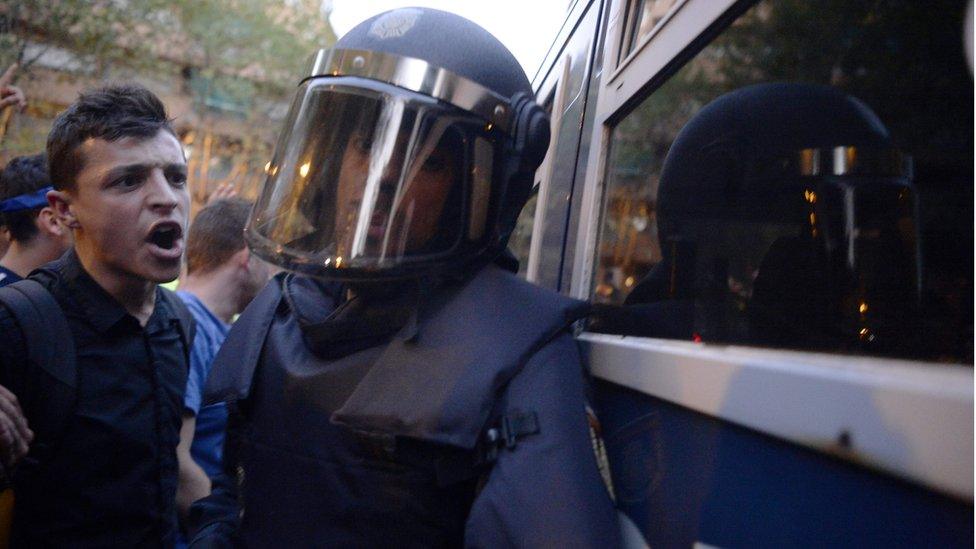Catalonia referendum: Madrid moves to take over local policing
- Published
Why some Catalans want independence
The Spanish authorities have moved to place all policing in Catalonia under central control to stop the disputed independence referendum on 1 October.
Col Diego Pérez de los Cobos has been put in charge of Catalan and central police forces in the autonomous region.
Madrid said the order was aimed at achieving better co-ordination. But the Catalan authorities rejected it, saying it was an unacceptable interference.
Thousands of extra police are being sent to the region to block the vote.
The Constitutional Court says the vote is illegal but Catalan leaders are determined to hold it.
The Spanish authorities have sought to stop the independence vote by seizing voting materials, imposing fines on top officials and arresting temporarily dozens of politicians.
The public prosecutor's office justified the the appointment of Col Pérez de los Cobos on the basis of a law governing joint operations in an autonomous region.
The order will remain in place until 1 October, Catalan newspaper La Vanguardia reports., external
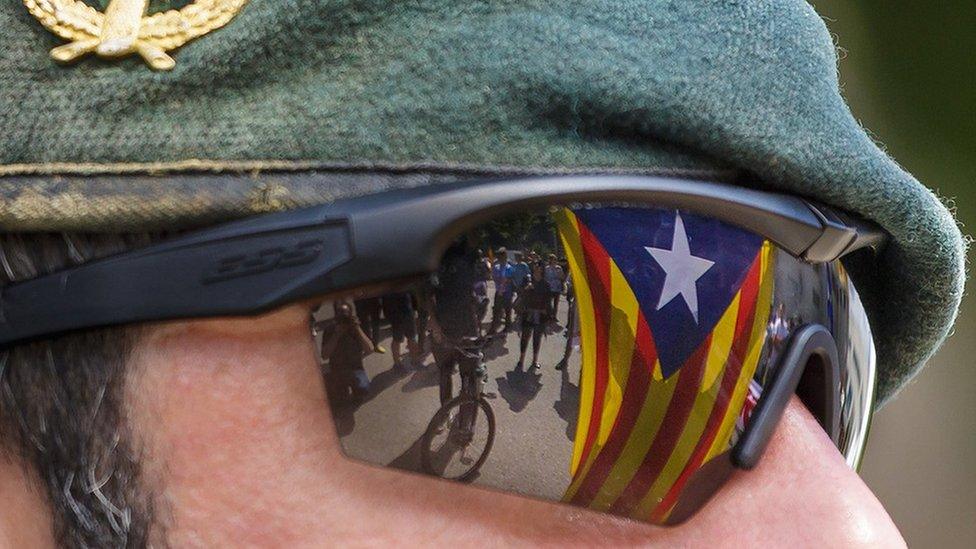
A Catalan independence flag is reflected in a Spanish policeman's sun glasses this week
Joaquim Forn, Catalonia's interior chief, said the local government did not "accept this interference" in the regional police, known officially as the Mossos d'Esquadra.
"The Catalan government does not accept this intervention of the state because it does not take into account all the legal framework that we have in order to take care of the security in Catalonia," he said.
"The leader of the Catalan police will not hand over his functions," he said.
The referendum issue has been peaceful so far but police have recently scuffled with Catalan demonstrators
At an event held by his conservative Popular Party in Mallorca, Prime Minister Mariano Rajoy repeated that the vote would not take place.
"It would be sensible, reasonable and democratic to stop and say, there won't be a referendum, which they know won't happen," he was quoted by AFP news agency as saying.
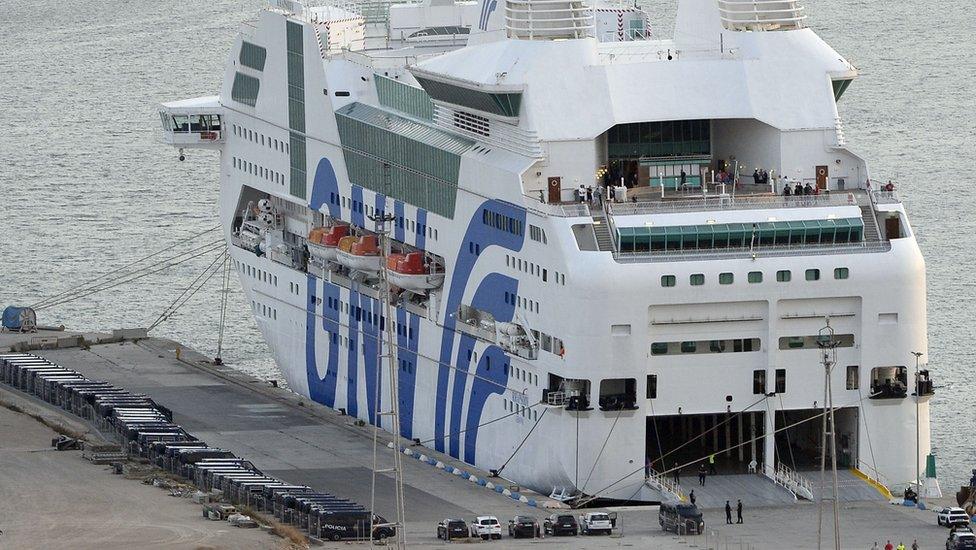
Police vehicles were lined up near the ships in Barcelona
Police numbers have been growing steadily:
Between 3,000 and 4,000 police officers from outside Catalonia have already arrived or are on their way, joining 5,000 already based in the region, Reuters news agency reports, quoting local media
Three chartered cruise ships are moored in Barcelona and Tarragona with capacity, AFP news agency reports, to house up to 6,000 police officers
Police water cannons are being sent to Catalonia, El Confidencial news site reports, tweeting a clip of one vehicle travelling towards Barcelona , external
Some demonstrators gathered in Barcelona on Saturday while hundreds of farmers, many on tractors, joined a protest in the city of Lleida.
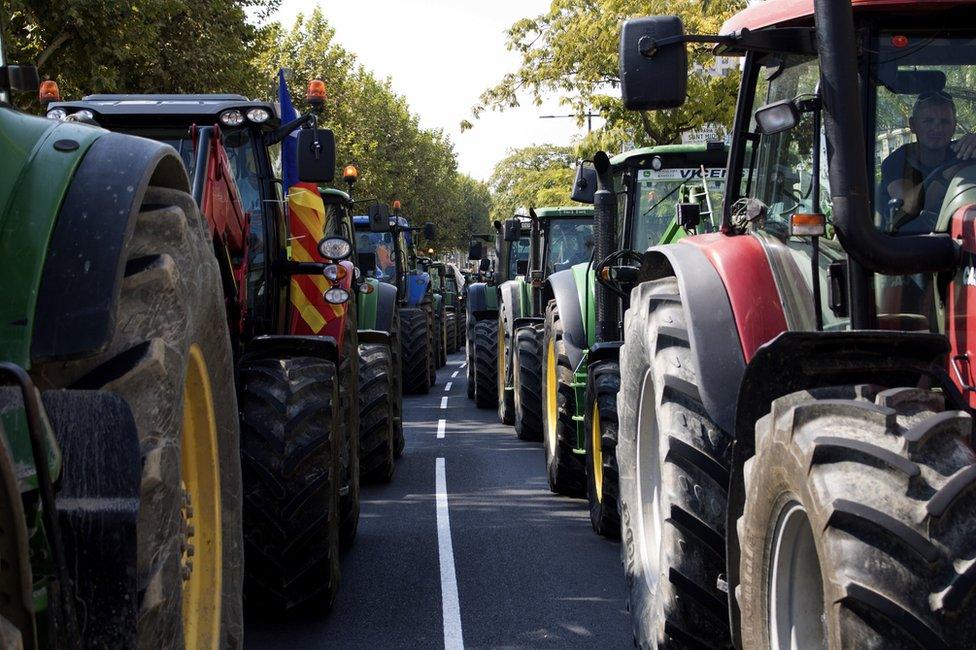
Catalonia's pro-referendum tractor rallies have been dubbed "tractoradas"
Separatist parties who control the Catalan parliament pushed through the referendum law earlier this month after unsuccessfully demanding for years the right to hold a free vote on self-determination.
Catalonia, a wealthy region of 7.5 million people in north-eastern Spain, has its own language and culture but is not recognised as a separate nation by the Spanish state.
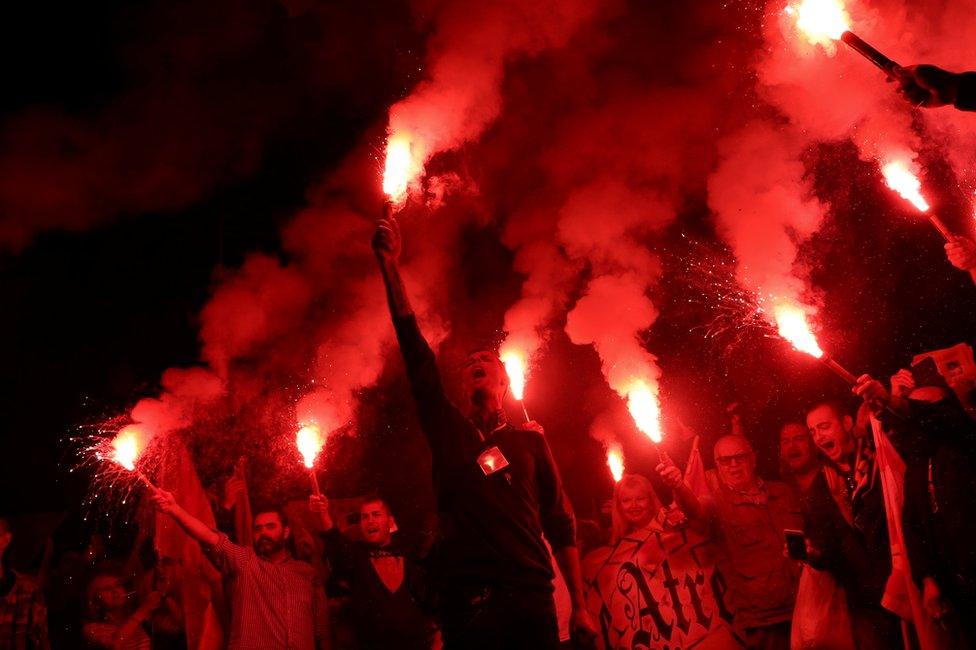
A small group of anti-referendum protesters lit flares in Barcelona on Friday night
- Published20 September 2017
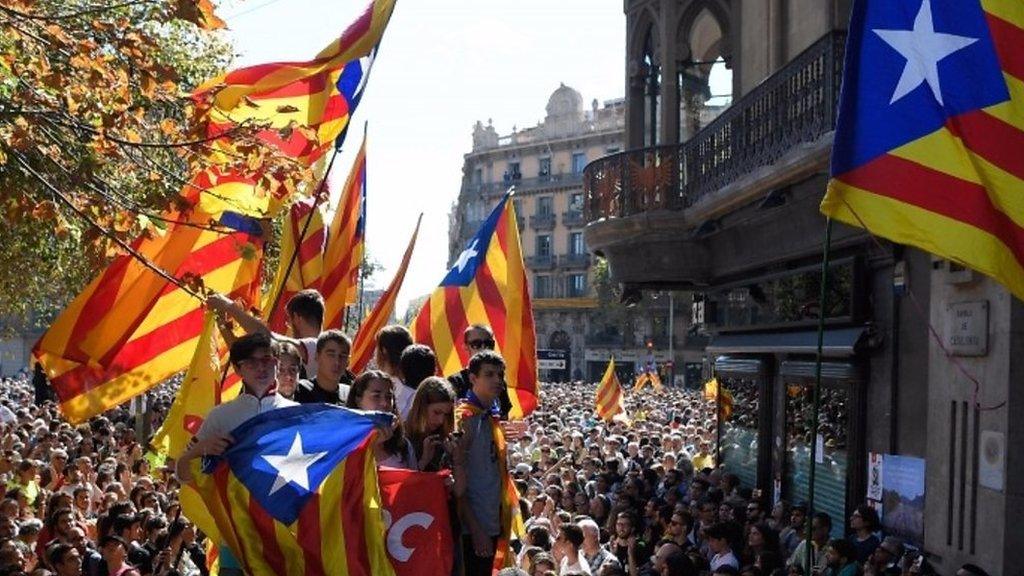
- Published21 September 2017
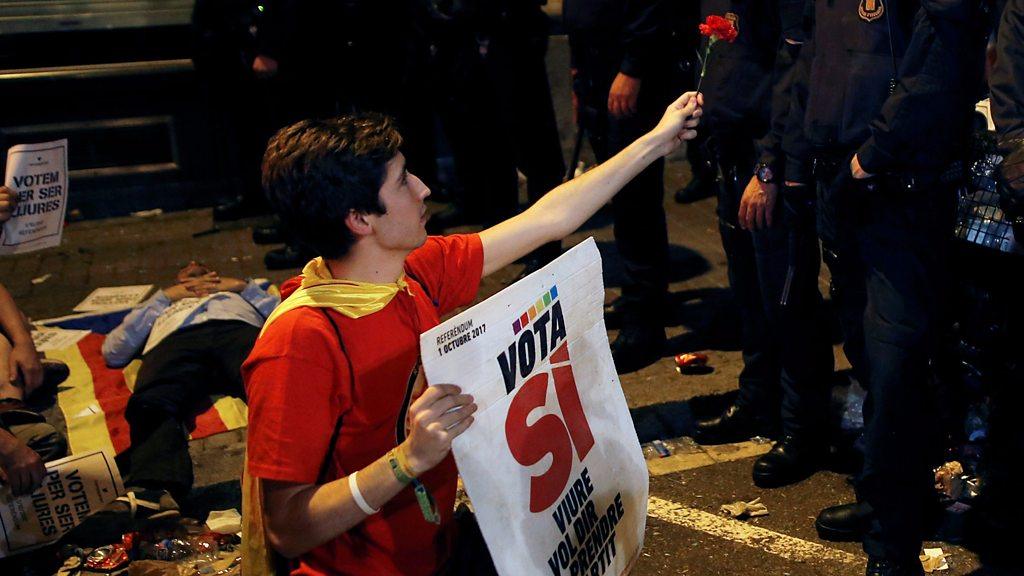
- Published18 October 2019
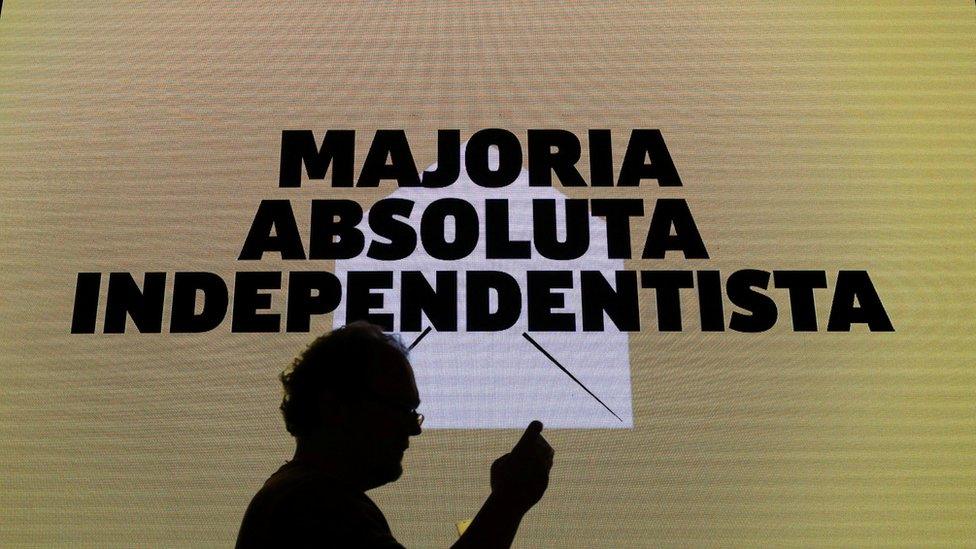
- Published15 September 2017
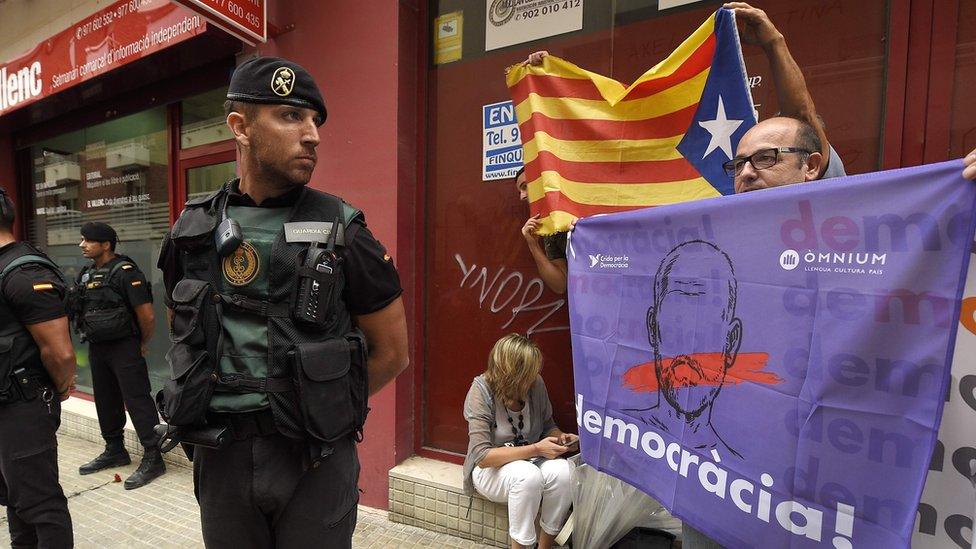
- Published21 September 2017
